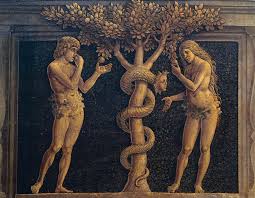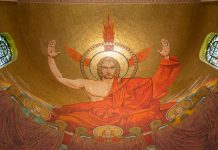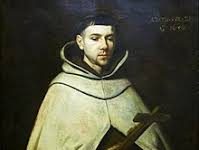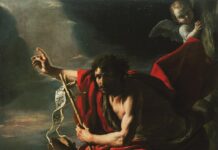Christmas Eve is the traditional feast of Adam and Eve, our primordial parents, considered saints in the Church, brought to heaven on the first Holy Saturday. (There is a beautiful early homily commemorating the event in the Office of Readings for the Triduum). Pope Pius XII, against a Modernist distortion of Genesis, taught in his 1950 encyclical Humani Generis that Adam and Eve do not represent a group or tribe, nor are they metaphorical symbols, but real, individual human beings, created perfect, with original justice (interior harmony of all the powers of the soul), along with all the praeternatural gifts: immortality, impassibility, agility (perfect control of the body), and fullness of knowledge. Sounds fantastic, but so is the very fact of creation. Tout est grâce. Everything is grace, and gift.
This was all shattered by that other primordial event, original sin, when, tempted by the Devil, Adam and Eve rebelled against God, disintegrating the harmony in themselves, between each other and with all creation. Their conscience seared, they developed a distorted view of God, dark and fearful.
It needn’t have been so, and need not be so. Adam and Eve did not stay in the state of sin, but by repentance were once again brought back to grace and friendship with God. That choice stands before each and every one of their billions of descendants. The story of salvation – of gaining back not only that original state of paradise, but heaven itself – is the Christmas story, the very fact of the Incarnation, the Word made Flesh, born of a woman. Mary, the new Eve, and Joseph, the image of the Father’s protective care, bring to us the new Adam, and us to Him. By Him, all things, and we ourselves, are made new, and far, far better than before.
Venite, adoremus, Christus natus est, alleluia!











